From Black Panther to Nonprofit CFO
Interview with Norma Mtume, former Black Panther and co-founder of SHIELDS for Families in Los Angeles.
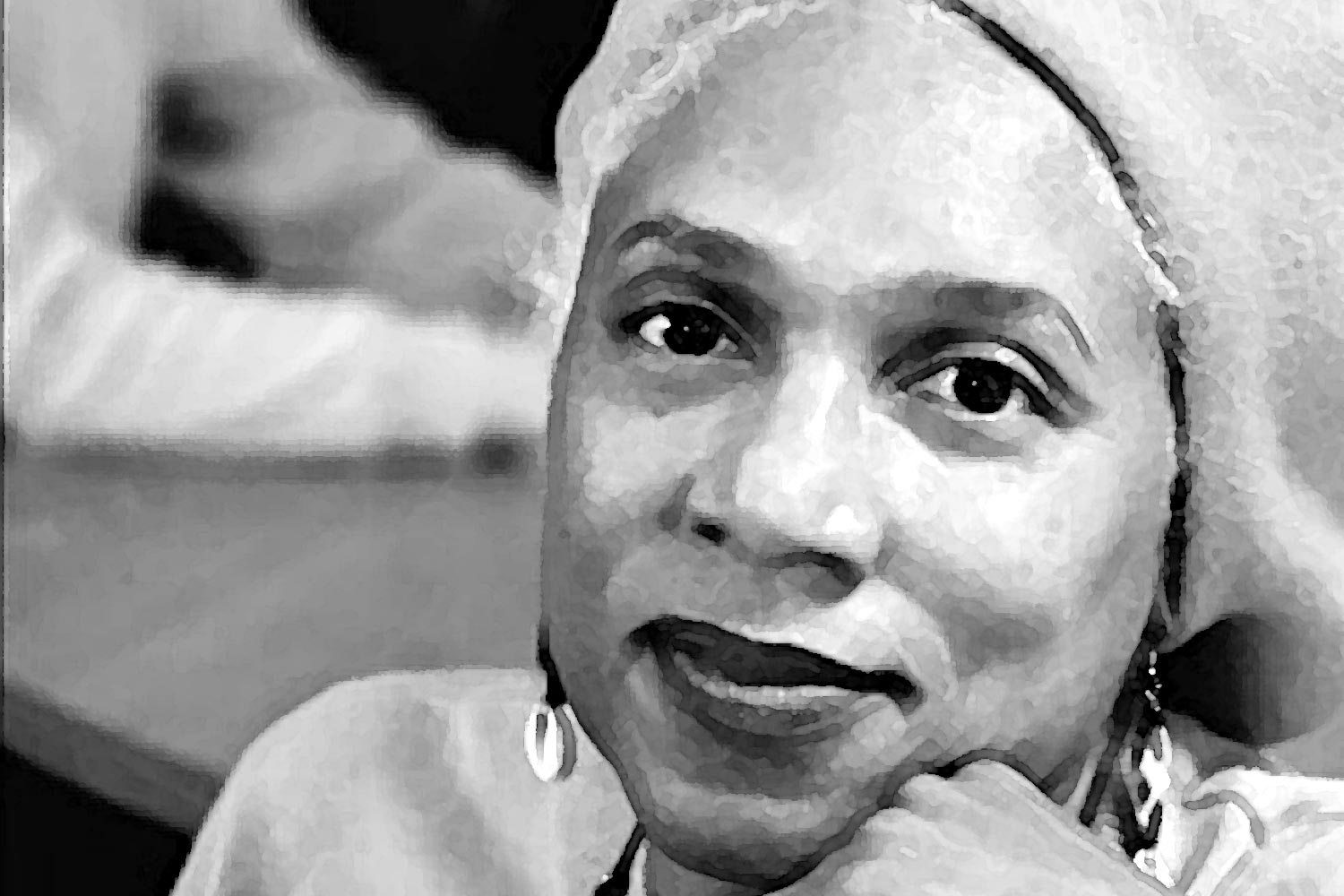
“I was going to pull myself up by my bootstraps, and didn’t realize until later that I didn’t have any boots!”
Norma Mtume is my hero. As a college student she joined the Black Panther Party and went on to serve as director of the Alprentice Bunchy Carter and the George Jackson People’s Free Medical Clinics. She also co-founded a nonprofit in a broken-down trailer in Los Angeles — SHIELDS for Families — and as CFO/COO for 24 years helped grow it into a $28 million, multi-service nonprofit rooted in an African American and Latino community of South Los Angeles.
We are very lucky that she has shared her inspiring history and story with all of us.
Norma, how did you wind your way towards becoming a nonprofit CFO?
Well, just a week after I graduated from high school I started at Cal State Los Angeles as a physical education major with a minor in mathematics, and was working on a teaching credential. As a South Central L.A. girl, I was going to pull myself up by my bootstraps, and didn’t realize until later that I didn’t have any boots! I attended classes there for two years before I dropped out, got married, had kids, and, later, decided I wanted to be a revolutionary and change some things to make life better for my community!
My first husband became involved with the Party when he was going to UCLA. He sold papers and worked in the Free Breakfast for Children Program. In 1969, police all over the country were raiding our offices. My husband was beat up pretty badly. That got my attention!
I began to understand what the Party was about. My first work in the Party was working [volunteering] in the free breakfast program and later I started performing secretarial work in one of the offices. Shortly after becoming involved and showing what skills I had, I was put in charge of the free medical clinic in Los Angeles.
What did your parents think about all this?
Initially, my parents weren’t happy at all. They were won over by learning about the services we provided in our “survival programs.” For instance, my older brother was in prison; my mother didn’t have a car so she had never been able to get up to San Quentin to see him. I was able to arrange for her and me to take the free bus provided by the Party to go visit him. My father took a little longer; they came around.
So how did you get from “typing in the office” to running a primary care medical clinic?
When I was a child and needed to go to the doctor, my mom and I had to take a long bus ride out to the county hospital, sit there a long time, and the care you got was substandard. So it felt right when the Party said we could start our own clinics with volunteers who were nurses, doctors, and students.
When the Party leadership learned that I was interested in health and had some college education, I was assigned to work in the free clinic in L.A., and ended up running it. I was 20! I had a lot to learn and great mentors who taught me what I needed to know in a short amount of time.
It’s hard now to capture the history-changing importance of the Free Clinics and other Black Panther programs that set the stage for the nonprofit health and human services revolution of the ’70s and ’80s. How did these clinics work?
This was the time of the Vietnam War and the antiwar movement, and there were a number of young men coming back from Vietnam who had been medics. They taught us how to do a lot of procedures, including a lot of preventive health.
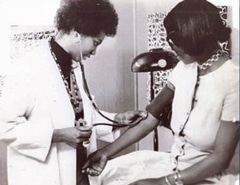 Well, we were sort of practicing medicine without a license, but had physician oversight. We learned how to draw blood and conduct other lab screenings, give injections, and fill prescriptions. There was a lab and a pharmacy on site. We reached out to pharmaceutical reps and would go to doctors’ offices to ask them to donate their free samples to the clinic. So people who came to the clinic were able to get many labs and their meds from us right there at the clinic, free of charge. We established referral mechanisms with local physicians and the county, as well as negotiated for some free/low-cost specialty and dental services.
Well, we were sort of practicing medicine without a license, but had physician oversight. We learned how to draw blood and conduct other lab screenings, give injections, and fill prescriptions. There was a lab and a pharmacy on site. We reached out to pharmaceutical reps and would go to doctors’ offices to ask them to donate their free samples to the clinic. So people who came to the clinic were able to get many labs and their meds from us right there at the clinic, free of charge. We established referral mechanisms with local physicians and the county, as well as negotiated for some free/low-cost specialty and dental services.
I was transferred to Berkeley and became director of the clinic there. At that time I had become a pre-med student at [the University of California] Berkeley. We had a really good collaboration with the medical students in the Black Health Science Caucus there. Some were pre-med, some were going to be lab technicians, and some were going into nursing. Many of them volunteered their services at the clinic as well as mentored us undergrads.
There were resident medical students from Children’s Hospital in Oakland that started a pediatric clinic for us. They treated our children like they were their own. During clinic sessions, we were taught how to listen to the bronchial sounds and to determine if they sounded like bronchitis, asthma, or pneumonia. We lived by the Merck Manual, Our Bodies Ourselves, and the Physician’s Desk Reference! I read them backwards and forwards.
As a result, we became much more informed about the health and health conditions which our communities were suffering from then, and now. Since that time, the term “health disparities” has been coined to define these conditions.
And how did you find yourself in the finance department?
When I was still in L.A., the person in the [Black Panther] chapter who was handling finances started working on the newspaper instead. So she taught me how to handle the finances.
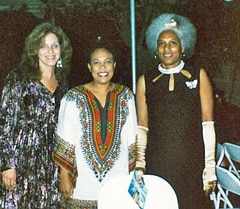 Later on, after we had founded two nonprofit organizations to provide a school and other supportive services, a CPA came to one of our fundraisers. She ended up coming over and showing me how to do basic bookkeeping. We had a pegboard system where you write the check and it comes out with a carbon copy. That data would be spread using columns to finally arrive at profit and loss and balance sheet statements. Wow! Most of that is done by computer now.
Later on, after we had founded two nonprofit organizations to provide a school and other supportive services, a CPA came to one of our fundraisers. She ended up coming over and showing me how to do basic bookkeeping. We had a pegboard system where you write the check and it comes out with a carbon copy. That data would be spread using columns to finally arrive at profit and loss and balance sheet statements. Wow! Most of that is done by computer now.
I took a two-month accounting class from that CPA. I learned how to write checks, reconcile the bank account, and post to the ledger. I’m a left-sided brain person. So, I need all the facts, all the numbers. I guess it just clicked for me.
And 20 or so years later, I helped start a few nonprofits in South Los Angeles. One of them is SHIELDS for Families, where I served as the CFO & COO for nearly 24 years. The agency now has a $28 million budget and nearly 400 staff members. And we have always had a clean audit.
I’ve always been involved with health and accounting. Numbers and the body.
How did SHIELDS get started?
In the late 1980s, the beginning of the crack epidemic, there were a lot of babies being born at Martin Luther King Hospital [in Los Angeles] who had been prenatally exposed to drugs. Kathryn Icenhower, CEO of SHIELDS for Families, and I were working at the country alcohol and drug program office. We were primarily doing health planning, program development, and writing grants. I had returned to college and gotten a master’s degree in health sciences. I later went back to school and earned another master’s degree in family therapy.
Because of work that Diane Watson had done in the legislature, funding for county hospitals to start perinatal substance abuse treatment programs was passed. Kathy and I met Dr. Xylina Bean, who was neonatology chief at Martin Luther King Hospital. She told us that she knew about babies, but not about substance abuse. Kathy and I knew about substance abuse. So we started SHIELDS in a broken trailer on the campus of the hospital and Charles Drew Medical School. Kathy became the administrator and, because of my finance and operations background from the Panthers and other jobs, I became the operations person [the three co-founders are in photo above; Norma is on the right].
How are we going to get more women of color into accounting and finance?
Honestly, I don’t know and I’ve been thinking about this question for years now. We need more people of color in finance because it goes with the work we’re doing in our communities. When we look at disparities particularly in heath and social economic status, people of color are the most in need and those who access services from our agencies. Maybe we can reach out to young women in high school or just beginning their college careers who are interested in and good at math. We need to offer some mentoring opportunities. We’re working Saturdays anyway, they may be happy to come and work with a mentor who can introduce them to the field and assist them with their college and career trajectories. We might also look into partnering with sororities to reach them.
How are you enjoying your first weeks after leaving SHIELDS?
How do you retire from a passion about wellness in the community and nonprofits being able to survive? Retiring from my main job has freed me up to go broader. I’m doing a few projects with Charles Drew Medical School in South L.A. I present to medical, nursing, and behavioral health students at symposia and conferences about integrated health care. I may work until my hands are all gnarly and I’ll have to dictate into a microphone. I’m working to better balance my life, but giving up work entirely for and in the community isn’t on the horizon… not just yet.
I love that I don’t have to supervise anyone anymore! I think that’s the left-brain part of me. I love people but would rather work in a flat hierarchy where we are all responsible for ourselves. Maybe that is a dream world, but I can dream now.
I love to travel, just went to Seattle and Vancouver. Great salmon and crab!
Are you in touch with some of the other women from the Black Panther Party?
Yes. A lot of us are teaching. One teaches women’s studies and African American studies. One was a main administrator in the Party and is now an executive-level manager at the American Red Cross; she just retired this month. Another is a professor of art history and Black studies and Africa/African diaspora/black feminism/race theory. Others are still involved in community organizing or working in higher level government positions.
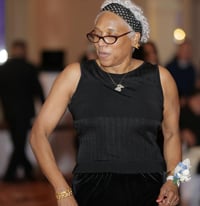 A lot of the people who came to the Party came with “issues.” The Party sheltered them, gave them ideas about life that made sense and about the kind of work that they could do. But after we left, it was back into the real world and we worked to get a foothold. A lot of the women who were in Party leadership have been able to get grounded outside the Party. Funny thing, most of us are still doing the work we began as kids in the Party.
A lot of the people who came to the Party came with “issues.” The Party sheltered them, gave them ideas about life that made sense and about the kind of work that they could do. But after we left, it was back into the real world and we worked to get a foothold. A lot of the women who were in Party leadership have been able to get grounded outside the Party. Funny thing, most of us are still doing the work we began as kids in the Party.
What people saw in the newspapers at that time was Panther women with their fists raised looking like they were wreaking havoc. Most of the time we were really serving the community in various ways — cooking free breakfasts for children, giving health exams to people who didn’t have health insurance, and educating the children.
We were the same people then that we are now. In African American communities we have a lot more illness and disability compared to the general population. This is something we have been saying in the days of the Party and we continue to say and work to correct.
And we’re still standing, making it on the other side.
Thank you, Norma. So many nonprofits today stand on the shoulders that you and others have given us. (And as you can see, she still has a lot of moves left in her.)
You might also like:
- How to Stop Managing Your Nonprofit and Start Leading
- When the Board Becomes the Problem: Reclaiming Power in Nonprofit Leadership
- Why Human-Centered AI Adoption Matters for Nonprofits
- Moving Beyond Performance: Making DEI Actionable
- The New Sheriff in Town: Tips for Successfully Leading a Nonprofit Team (that Someone Else Built)
You made it to the end! Please share this article!
Let’s help other nonprofit leaders succeed! Consider sharing this article with your friends and colleagues via email or social media.
About the Author
Articles on Blue Avocado do not provide legal representation or legal advice and should not be used as a substitute for advice or legal counsel. Blue Avocado provides space for the nonprofit sector to express new ideas. The opinions and views expressed in this article are solely those of the authors. They do not purport to reflect or imply the opinions or views of Blue Avocado, its publisher, or affiliated organizations. Blue Avocado, its publisher, and affiliated organizations are not liable for website visitors’ use of the content on Blue Avocado nor for visitors’ decisions about using the Blue Avocado website.







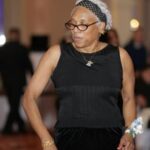
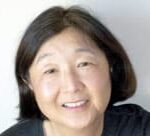
What a marvelous article of human achievement and collaboration. And a constant reminder that without vision, we perish. Norma Mtumi is a hero… One of those rare souls that saw beyond the problem and fixed her vision on the cure. I’m a better person today for reading her story.
What a true inspiration!
What an awesome woman and mentor with so many life experiences!! Thank you for so many years of service to our community! Wishing you well in your retirement.
Great read!!
Non-profit started by the South California Chapter of the Black Panther Party, http//:csuinc.org . Working on Food Justice issues in South LA.
Great read!!
Non-profit started by the South California Chapter of the Black Panther Party, http//:csuinc.org . Working on Food Justice issues in South LA.
Such a great article about important women of color in our herstory! Im inspired! Thank you for sharing with us.
Such an inspiration!
My very best friend. 50 years ago, who would’ve thunk? She’s my sister and no one could be prouder of her than I.
Always touching, humble and inspirational. Much love and respect granny!
Simply inspiring.
I'm hoping people will see in this article much more than an inspiring story of one individual (although there's a lot to be said for inspiring stories).
Two things really struck me as keenly relevant substantive lessons:
* The "get it done" attitude and resourcefulness. In contrast, so many nonprofit professionals today say "I want to use my skills" rather than "I want to make things better for my community." So we focus on having jobs that let us use our "professional" skills rather than on jobs that will demand all those skills and many we don't have yet. And in today's management-oriented nonprofi sector, we tend focus more on being compliant with rules than on helping people in need.
* The revolutionary, African American-based roots of today's human service organizations. Before the 1960s and the Black Panthers, nonprofits were mostly charities, "us helping them" organizations. The early student and black movements of those years were about protests and rights (yes I know I'm oversimplifying).
The Black Panthers' development of Free Breakfast for Children and other services (like taking people to see family members in prison) made the connection between services and activism/protest. These "survival programs" (with the slogan "Survive until the revolution"), framed activities like health care as part of movements, not as un-political charity work. Our nonprofit sector today — so robust with disability providers, immigration support organizations and so forth — stands firmly on the theoretical and practical platform built by the Panthers. The Panthers made it clear that "Serve the People" was an organizing act, not a charitable act. As we all now know, it's not enough simply to help families in crisis; we must also advocate for the laws that will help keep families out of crisis.
Let's be sure we learn the strategic lessons of Norma's story, in addition to being inspired by her.
The world is a better place because of you my dear cousin. I am so proud of your accomplishments and your dedication to improving the quality of life for others, especially people of color and the poor. Please continue to spread your wisdom and recruit others to carry on your good works. – Lois Gaston
This article is truly inspiring!! As a Muslim living in South Central Los Angeles, it strengthens my resolve to continue to ‘pull myself up by my bootstraps’ and continue on my journey despite the obstacles that may be in my path.
Thank you Norma for all that you do. You are truly an inspiration.
–submitted by Anissa M. Muhammad on February 1, 2015.
Thank you for providing this article of history, legacy and foundation for our future as we continue to press toward the mark of supporting and advocating for those in need and providing services that are needed and part of basic human rights. Because of people like Norma, dreams have and still can become reality with “get it done” mentality and work that reaches past obstacles bringing others along to learn and join in the service.
This is a great article. I was raised in Compton, CA and benefited from the head start and free lunch programs started by the BPP. I am 51 now and an accountant by trade. This article was inspirational and has motivated me to continue to give back to the community that has helped me achieve so much.
This is a great article. I was raised in Compton, CA and benefited from the head start and free lunch programs started by the BPP. I am 51 now and an accountant by trade. This article was inspirational and has motivated me to continue to give back to the community that has helped me achieve so much.